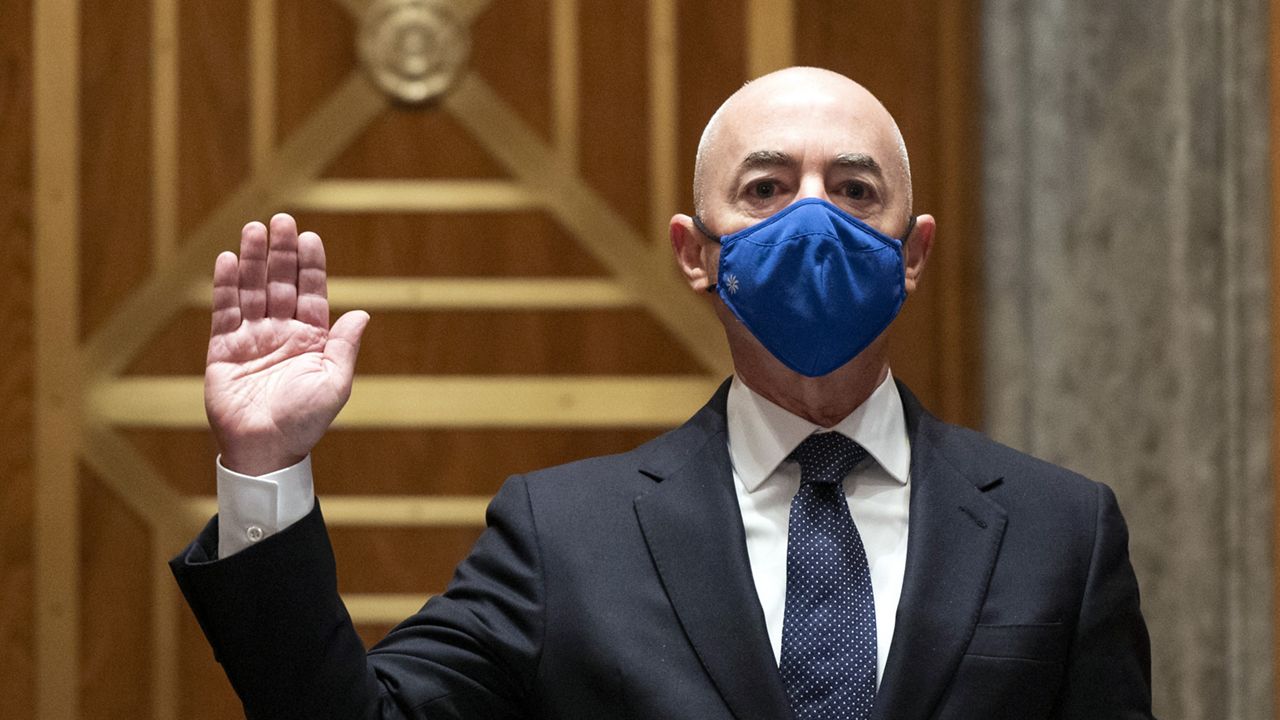President-elect Joe Biden’s pick for Homeland Security Secretary, Alejandro Mayorkas, faced questions from senators Tuesday about his plans for the department, the border, and immigration reform.
Mayorkas served the department during the Obama administration, first as the head of USCIS and then as Deputy Secretary for DHS. Born to Jewish parents, his family fled Cuba when he was a baby. Several of his mother’s relatives were killed during the Holocaust.
Before the Senate Homeland Security Committee Tuesday, Mayorkas committed to working with Congress to address the factors driving migration toward the country’s southern border, especially what he called the “push factor.”
"When loving parents are willing to send their young child alone to traverse Mexico, to reach the dangerous southern border … because of the acute violence and severe poverty and fear of persecution, I think we need to address the push factor as the gravest challenge to irregular migration," Mayorkas said.
He wouldn’t commit to removing President Trump’s border wall, but he said that border security requires a "diverse approach," which sometimes means a physical barrier and other times means more border patrol on the ground.
Mayorkas message to senators was that the U.S. is both a nation of immigrants and a nation of laws, and he promised to abide by current laws when implementing immigration policy.
The DHS nominee said that includes his potential approach to the migrant caravan currently headed for the U.S.-Mexico border.
"When people present themselves at our border, we apply the laws of our nation to determine whether they qualify for humanitarian relief and whether they don't," Mayorkas said, giving no more details.
His testimony wasn’t enough to convince every senator to fast-track his confirmation. Later Tuesday, Sen. Hawley (R-MO) announced he would block a quick process in the Senate, setting up for a longer debate over Mayorkas' nomination and delaying his addition to Biden's Cabinet.
"Mr. Mayorkas has not adequately explained how he will enforce federal law and secure the southern border given President-elect Biden’s promise to roll back major enforcement and security measures," Hawley wrote in a statement. "Given this, I cannot consent to skip the standard vetting process and fast-track this nomination when so many questions remain unanswered."
Mayorkas took questions from Hawley about Biden’s proposed immigration plan, which would provide an eight-year pathway to citizenship for millions of migrants in the U.S. without permanent status. Biden is expected to introduce the plan Wednesday.
Mayorkas said he would be "privileged" to work with Congress to establish that pathway as a permanent solution to a “broken system.” Hawley called it an “amnesty plan.”
Still, Mayorkas had bipartisan support from former DHS and other security officials, including four former Homeland Security secretaries who wrote an op-ed advocating for his quick confirmation.
"We each know Mayorkas as a man of character, integrity, experience and compassion," they wrote.
Asked about the attack of the Capitol earlier this month, Mayorkas also said he would commit to addressing domestic terrorism as well, including white supremacist threats.
Mayorkas faces several challenges as he seeks to reform an immigration and border security system that has largely been run down by the Trump administration, including system infrastructure that needs rebuilding.
"Challenges bring opportunity," Mayorkas said as he chatted with California Sen. Dianne Feinstein, before the hearing. “I’m going to work incredibly hard to make that true."



